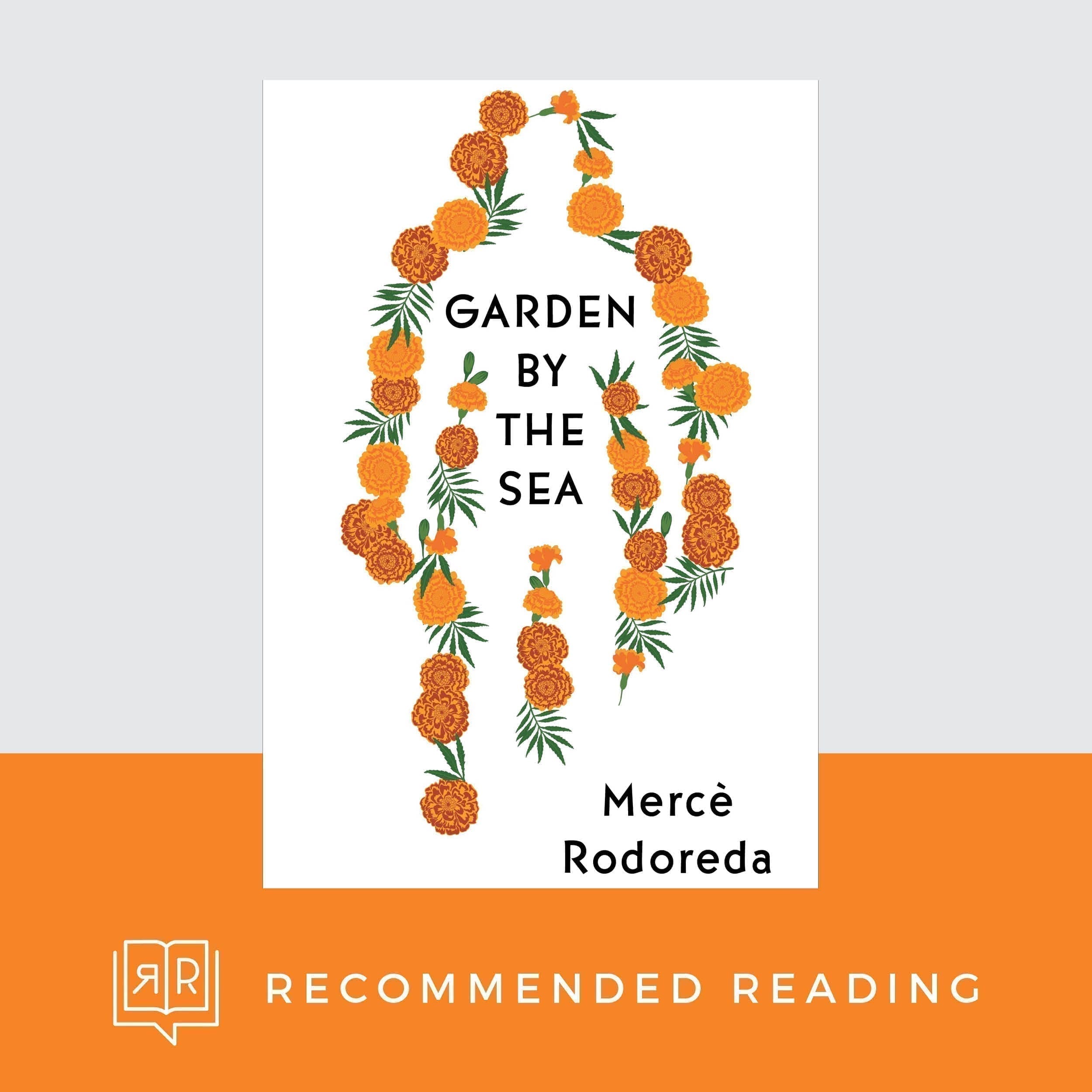Interview: Martha Tennent and Maruxa Relaño, Translators of Garden By The Sea
 Mercè Rodoreda’s novel Garden by the Sea is a story that drifts; filled with wealthy friends enjoying many summers together under the watchful eye of the gardener. The “slow moving drama” is what Martha Tennent and Maruxa Relaño enjoy most about it. Mother and daughter, they’ve translated several novels separately and together, and were especially intrigued by the quiet road Rodoreda created that led them into this unique portrayal of what they believe to be Spain in the 1920s.
Mercè Rodoreda’s novel Garden by the Sea is a story that drifts; filled with wealthy friends enjoying many summers together under the watchful eye of the gardener. The “slow moving drama” is what Martha Tennent and Maruxa Relaño enjoy most about it. Mother and daughter, they’ve translated several novels separately and together, and were especially intrigued by the quiet road Rodoreda created that led them into this unique portrayal of what they believe to be Spain in the 1920s.
How did you get started as translators?
MT: Living in a trilingual cultural environment in Barcelona inevitably I found myself translating on a daily basis. My theoretical interest in translating started later, during the years I was Dean of the School of Translation and Interpreting at the University of Vic, Barcelona, but paradoxically I had no time then to devote to any literary translations of my own. It was only later, while living in New York City that I started translating, almost by accident. I was reading the short stories of Rodoreda and it occurred to me to try my hand at rendering some of them into English.
MR: For someone who has grown up bilingual, translation work often comes naturally, even if it is usually commercial translation. As many bilinguals do, I dabbled in it for years as a way of supplementing my income, then worked as a translation editor for the Wall Street Journal. One summer, Martha and I were on a short vacation in the South of France. We were sitting across a long wooden table from each other, in a dusty stone cottage. She looked up from her computer and asked if I’d be interested in co-translating a novel with her. Yes!
And what led up to your translating Garden by the Sea?
MR: We’d been collaborating, off and on, for years, when Open Letter approached us about translating this book. We were thrilled.
Is this the first Rodoreda book you’ve translated?
MT: I had published some short stories by Mercè Rodoreda in magazines and from there a correspondence with Chad Post of Open Letter Books developed. I translated Rodoreda’s novel Death in Spring, in 2009, and then in 2011 I translated The Selected Stories of Mercè Rodoreda, both for Open Letter Books.
MR: By the time Open Letter commissioned the translation of Rodoreda’s novel War, So Much War, published in 2015, we were already a more or less established translation team, having previously co-translated two other novels together.
Have you collaborated on other projects (with each other or other translators) or do you tend to work independently?
MT: We have worked both independently and collaborated on other projects. Maruxa (pronounced Maroosha) and I have translated five novels together.
What kind of challenges did you face while translating Rodoreda’s book together?
MT: It was tricky to find the tone we wanted for this benevolent gardener who relates events, or non-events, mainly after the fact or second handedly. How does the translator convey the subtlety of what is only implied, what is left unsaid? And as always in Rodoreda, the great lover of flowers, it is not always easy to find the right translation for her enormous botanical lexicon. Some local Catalan terms for flowers, for example, vary regionally or even by village, something that is also true of fish and wild mushrooms—another nightmare to translate!
MR: I’d say our main challenge, by no means an insurmountable one, is coming to an agreement on tone, and negotiating our differences when it comes to interpreting the text. I’m more conservative than Martha, whereas she has less of a problem reinterpreting the text for a different audience. It’s a give and take. Altogether, I’d say we are a salutary corrective to each other.
Garden by the Sea takes place over 6 summers in Spain and hones in on the lives of wealthy friends intent on enjoying their time together. What about the setting and/or characters drew you to this book?
MT: I think we were both attracted by the slow-moving drama, the “unhurried melancholy” as Maruxa described it, a slow quiet road that will lead to disaster, the measured discovery of ever deeper layers of meaning that appear throughout the novel, despite the sparseness of the story itself, the counterpoint of lush descriptions of the garden and the domestic drama that unfolds. It is an elegant, romantic novel.
MR: The temporal setting was also interesting, for there are no dates in the novel, no references to historical events. In many ways it is a timeless novel. We think it is probably intended to portray the late 1920s. Rodoreda was twenty years old in 1928, the year she married her uncle. She refers in the novel to the new sport of water-skiing, invented in 1922. There are no rumbles of the Spanish Civil War (1936-1939), and the 40s in Spain was a period of penury and hunger, which does not feature in the novel.
The book is told through the lens of the gardener indicating a storyline about socioeconomic status. Tell us your thoughts on the author’s use of that POV.
MT: Contrary to most novels that deal with different social classes, here the wealthy “masters” and the extremely rich family next door were not born into wealth, but have risen into it, and they treat their domestics kindly for the most part, which is in itself interesting. It is the sassy Brazilian maid who ends up marrying the richest of them all!
MR: The character of the gardener, who narrates the novel, is an unassuming, unnamed man, both an intimate part of life at the villa and completely outside of it at the same time. He listens and observes the goings-on around him while he goes his own way, tending his garden with infinite care and knowledge.This distance affords him a detached equanimity, and he views the dramas that swirl around him accordingly. While the rich people and their friends fight, throw lavish parties, and strive in vain to keep their existential ennui at bay, Rodoreda seems to be advocating, through the gentle gardener, the merits of a contemplative life and independent spirit, though no one in this novel is spared sadness.
What is your translation process like?
MT: We like to divide the text up and tackle it head on, then edit each other’s work for however many rounds are necessary, reading the translated draft against the original to ensure accuracy and also to conserve, when possible, its syntactical structure, which has a lot to do with its intended rhythm and texture. In subsequent drafts we discuss disagreements at the word and sentence level, as well as regarding style.
MR: In the final stages of the translation process, we combine our translations into a master copy and begin editing anew, often working physically together and stopping every few pages to review our progress, making the necessary changes. At the very end, we sit down together and one of us reads the text aloud, tweaking the final draft as we go. We certainly don’t always agree on every contentious phrase. We slam doors occasionally or retreat from the table in a huff. And we laugh a lot. That’s how we work!
Without any spoilers, what was your favorite thing about Garden by the Sea?
MR: I like the atmosphere, the salt water, the summer heat, the fact that nothing much seems to happen, the drifting and unapologetic lethargy of the family. The quiet tone of the narrative, combined with the humility and poise with which the gardener-narrator approaches life, seems a welcome rebuke of our dizzying, narcissistic times.

[cm_page_title title=”Continue Reading” subtitle=” Shelf Unbound”]
Article originally Published in the October/November 2020 Issue: Read Global.
